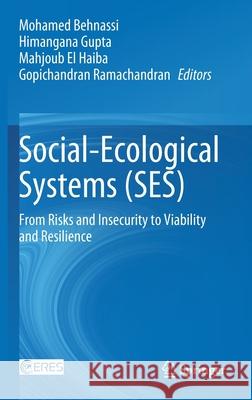Social-Ecological Systems (Ses): From Risks and Insecurity to Viability and Resilience » książka
topmenu
Social-Ecological Systems (Ses): From Risks and Insecurity to Viability and Resilience
ISBN-13: 9783030762469 / Angielski / Twarda / 2021 / 255 str.
Kategorie:
Kategorie BISAC:
Wydawca:
Springer
Język:
Angielski
ISBN-13:
9783030762469
Rok wydania:
2021
Wydanie:
2021
Ilość stron:
255
Waga:
0.59 kg
Wymiary:
23.39 x 15.6 x 1.75
Oprawa:
Twarda
Wolumenów:
01
Dodatkowe informacje:
Wydanie ilustrowane











